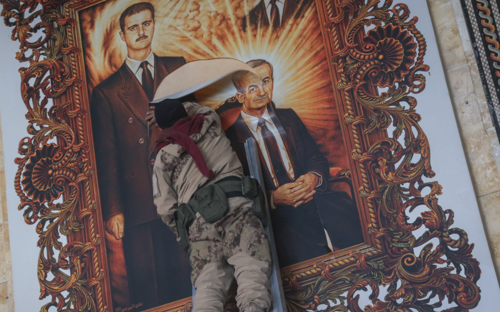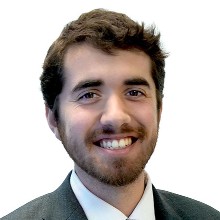When the 50-year Syrian dictatorship folded like a paper tent before an unimposing coalition of rebel factions, it threw the country’s future into uncertainty. “Where’s this headed? Who’s in control? Is this a good thing or a bad thing?” Family Research Council President Tony Perkins uttered aloud the thoughts on everyone’s mind. In particular, he added, “Our attention turns to the Christians.”
“The trouble is, right now, we don’t know who’s in control. And that’s a volatile situation,” said Rep. Tim Burchett (R-Tenn.) on “Washington Watch” Monday.
Retired Lt. General Jerry Boykin, executive vice president of Family Research Council, preferred to see the glass as half-full. “It has the potential to be a very good thing, but it also has the potential to go the other way and to create more problems than already exist in that part of the world,” he said. “It depends on where the leadership of HTS — as they call themselves — where the leadership aligns itself. Who do they align themselves with?”
Hayat Tahrir al-Sham (or HTS) is an Islamist group with ties to al-Qaeda, which the U.S. intelligence community designates as a foreign terrorist organization (FTO). Along with the Turkish-backed Syrian National Army, HTS launched the rebel offensive earlier this month that resulted in Assad’s downfall. Its recent military success will likely translate into some measure of influence in the formation of a new Syrian government.
“The leader of HTS is a guy named [Abu Mohammed] al-Jawlani, and he has a history of being associated with ISIS and other terrorist groups. But he has distanced himself from them now, and I think that that was necessary,” continued Boykin. Under his leadership, the rebel coalition has, “up to this point … rebuffed ISIS. So that’s a good thing, but that’s new.”
While not every religious radical will bend his scruples for political power, history is full of examples of men who have.
The real question is, how will HTS and al-Jawlani treat Syria’s sizable Christian minority? “I’m worried about our Christians that are in this country,” said Burchett. “I’m afraid there could be some beheadings and things like that. We’re not really sure. There [are] unconfirmed reports of things like that going on right now.”
 In this respect, Bashar al-Assad was “the devil we know, versus the devil we don’t know,” Burchett added. Assad evidenced “brutal, tyrannical, dictatorial leadership” for decades, said Perkins. But, when it came to Christians, “I wouldn’t say [he] protected them, but he left them alone. There was some security there.”
In this respect, Bashar al-Assad was “the devil we know, versus the devil we don’t know,” Burchett added. Assad evidenced “brutal, tyrannical, dictatorial leadership” for decades, said Perkins. But, when it came to Christians, “I wouldn’t say [he] protected them, but he left them alone. There was some security there.”
“Christianity, obviously, has a long history in Syria in the Middle East,” FRC Vice President for Policy and Government Affairs Travis Weber told The Washington Stand. “And some of the orthodox churches that don’t proselytize have had a certain level of ability to operate in certain countries, including under the Assad regime and elsewhere.”
“So, the treatment of those churches by HST rebels is certainly something we’ll be concerned about, that’s a different dynamic,” Weber went on, as well as “the ability of Muslim-background believers, churches, and others to operate in a manner consistent with a true conception of religious freedom: the freedom to choose and change one’s beliefs and live in accordance with one’s conscience.”
Christians already enjoy some measure of religious freedom in northeast Syria, which a Kurdish civil government has run largely autonomously since the Syrian civil war began a decade ago. “That government has made strides toward religious freedom and represents the most pluralistic government in the region, certainly within Syria,” said Weber.
The U.S. government backed this northeastern government during the fight against ISIS and maintains a token military presence in the region of 900 troops.
The government in northeast Syria also oversees detention facilities where approximately 9,000 former ISIS fighters are in prison. “It’s in our interest to not see them released and roaming free once again in Syria,” Weber added.
Unfortunately, Turkey fiercely opposes anything that resembles Kurdish autonomy, as it fiercely suppresses Kurdish separatism in its own southeast region. Turkey is now encouraging the ascendant rebel coalition to attack this autonomous region, backed by Turkish air power.
Where all these developments lead, for Christians, for the autonomous northeastern Kurds, or for Syria as a whole, “only time will tell,” said Boykin. “But this is the way I see that: I think that the last thing they want to do is alienate the United States. And when you go after the Christians, don’t ever ask the United States for funding or support or a vote in the U.N., because you’re not going to get it if you’re over there persecuting the Christians.”
Indeed, the best-case scenario is that the victorious Syrian rebels are more interested in ruling a prosperous, stable nation than they are in persecuting religious and ethnic minorities or indulging a vendetta against Israel. It will be up to the incoming Trump administration to use its various levers of hard and soft power to persuade whoever ends
Editor's Note: This article first appeared here.
Notice: This column is printed with permission. Opinion pieces published by AFN.net are the sole responsibility of the article's author(s), or of the person(s) or organization(s) quoted therein, and do not necessarily represent those of the staff or management of, or advertisers who support the American Family News Network, AFN.net, our parent organization or its other affiliates.








